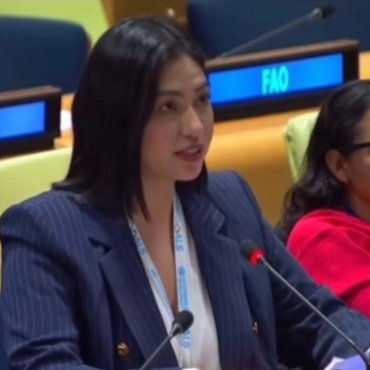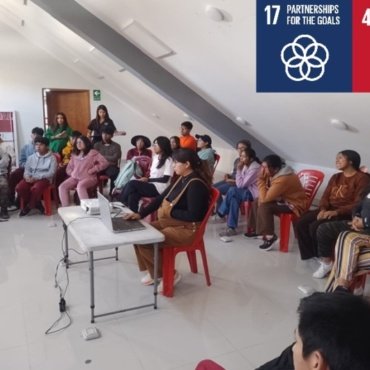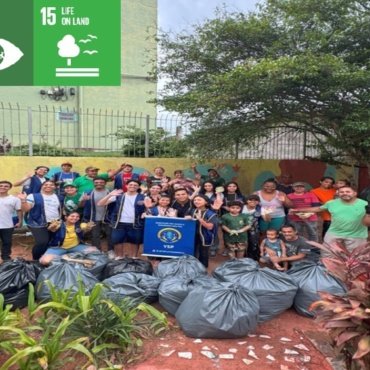Youth and Multiculturalism in Austria: “Preventing Violent Radicalisation of Young People”
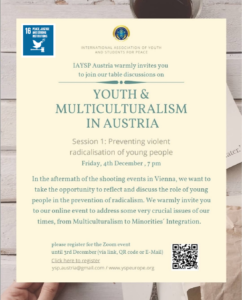
On December 4, 2020, at 7 pm, IAYSP Austria organized a Zoom meeting on Youth and Multiculturalism in Austria, “Preventing violent radicalization of young people.” Due to the recent shooting terrorist attack in Vienna, IAYSP Austria felt it was crucial to discuss themes around the topic.
Sixty-two people from different backgrounds and NGOs participated in the event. Three speakers shared their input and answered the questions of the audience afterwards.
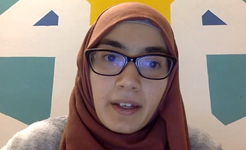
Mrs. Mag. Dür-Kwieder, a psychologist, an adult trainer, and a volunteer at the Documentation and Counseling Centre for Islamophobia and Anti-Muslim Racism; mentioned that the attacks had led to a significant increase in racism against Muslims, especially Muslim women.
Minorities often feel excluded and unwelcomed, which leads to isolation, and many exclude themselves from society. Mrs. Dür-Kwieder highlighted that solidarity is the key.
Südwind, an Austrian Association non-profit NGO focusing on education and campaign work in the international development field, conducted research on “rhizome against polarisation.” This research concluded that young people who are facing racism and feel unwelcomed, develop an insecure personality, have difficulties making connections with others, and their identity becomes fragile. Extremist groups look for those who have such identities and are in need of support and orientation.
Mrs. Dür-Kwieder stated that we have been blind to the needs of young people. And as a society, we should include those young people more and provide hopeful prospects to them, suggesting that there should be a subject in school curriculums to develop racism and social media competence.
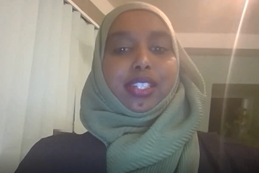
Mrs. Dr. Mohamed, a pharmacist and public health advocate originally from Somalia, who lived in Saudi Arabia, Syria, Pakistan, and Austria; aims to spread awareness about refugee and migration issues, improve the healthcare and pharmaceutical systems in developing countries, and empower women and young people.
In her presentation, Mrs. Dr. Mohamed highlighted that young people get radicalized due to a lack of having a clear sense of identity, and missing a sense of community. These characteristics result in a negative view of the world and such young people lose trust and often face violence at home. She stated that society could also cause radicalization and that we can prevent this by giving young people a sense of identity, providing dialogue in schools by talking to the students on migration, and learning about other cultures. She further emphasized that we need to work together as a community to establish preventative measures and help each other.
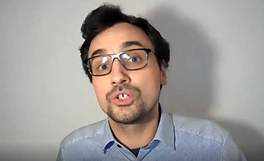
Mr. Bogdan Pammer, a teacher in Steyr, former school director, and IAYSP President of Europe and the Middle East; mentioned that the radicalization of young people is a broader social issue and stated that in his understanding, there are two extremes that young people face: On one hand, there is nihilism, which portrays hopelessness, rejection of great stories of how the world is and not finding one‘s place; on the other hand, in their search for the identity, they are confronted with totalitarianism, which provides them with simple answers: a sense of belonging and empowerment.
However, it is indispensable to supply young people with a narrative for their journey in life that prepares them to deal with those traps or temptations. Moreover, Pammer said that the family plays a crucial. The family gives us purpose and belonging and helps us to deal with contradictions in life.
Pammer highlighted that schools and teachers are vital to providing a holding space for young people, as young people have many changes and perspectives going on in their minds, bodies, and relationships. School is much more than a place that provides knowledge. A holding space refers to a free space where teachers instil high expectations on all students and encourage them to challenge their view on the world. Furthermore, he said that applying the seven pillars against violence is essential in schools and in preventing the radicalization of young people. Pammer went on to say that teachers have to start believing, again in themselves, that they play an indispensable role in society.
Another important aspect is the role of religious communities and NGOs. Mosques are central in building defences against nihilism and totalitarianism.
Pammer accentuated the four core values of IAYSP as crucial in fighting radicalization: RISE, which stands for Responsibility, Integrity, Service, and Empathy. The role of Peace Designer Projects will increasingly be more and more necessary.
A question-and-answer discussion concluded the program.


